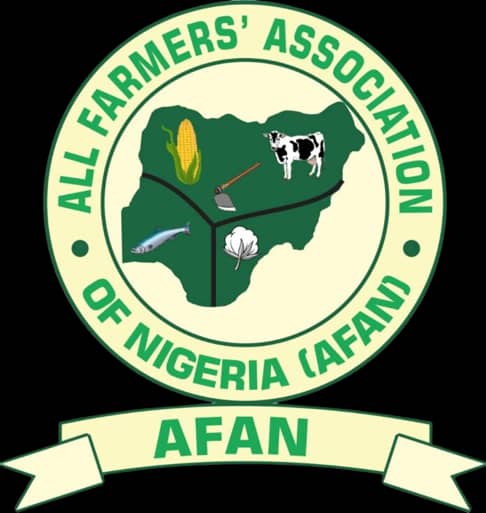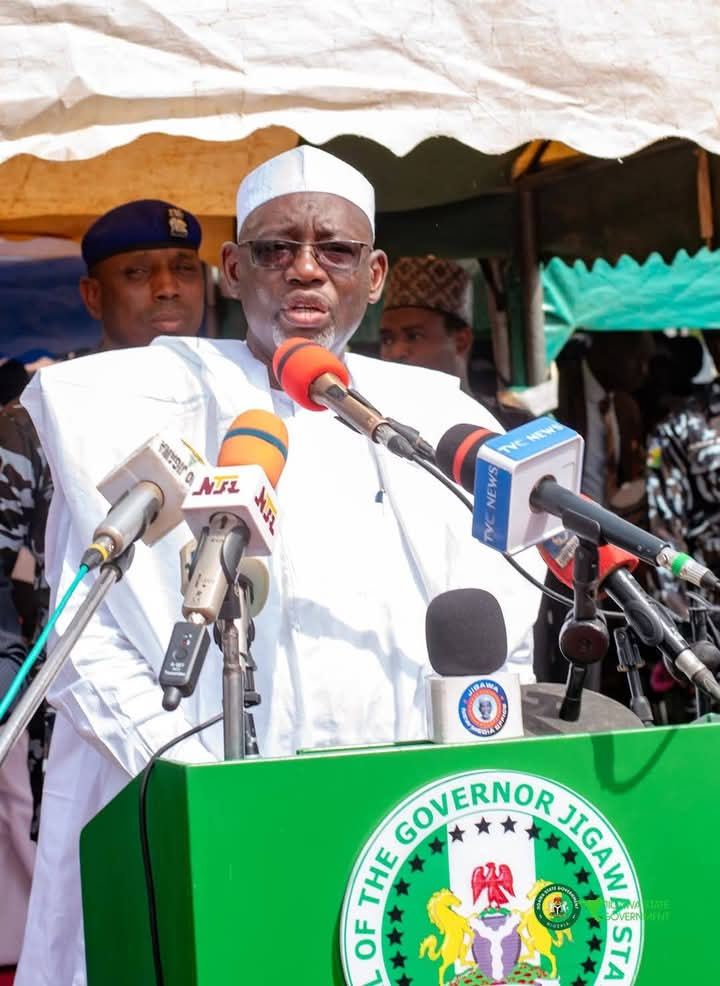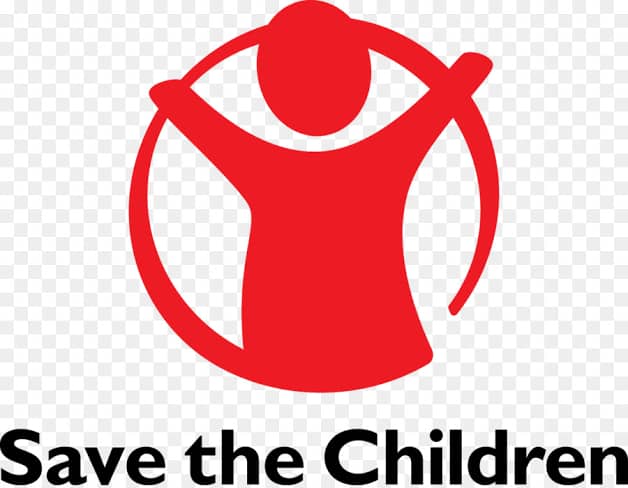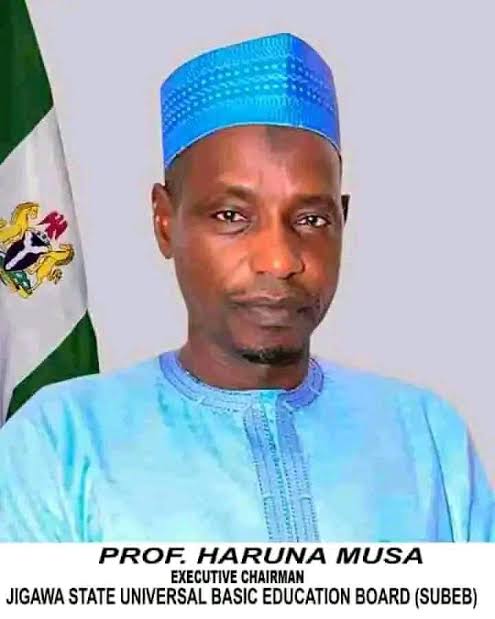Jigawa
AFAN in Jigawa Condemns Fraudulent Practices Targeting Farmers

By Ahmed Rufa’i Dutse
The Jigawa State Chapter of the All Farmers Association of Nigeria (AFAN) has raised concerns over the rising number of criminals impersonating the association and extorting money from farmers under the guise of registering them for agricultural support programs from both the Federal and State governments.
In a statement issued and signed by the state’s chairman, Engineer Auwal Garba Ibrahim, the association distanced itself from individuals or groups involved in the fraudulent activities across the state.
The statement reads, “It has come to our attention that certain unscrupulous individuals are falsely representing themselves as leaders or agents of AFAN, Jigawa State Chapter. These impostors have been approaching farmers, claiming they are entitled to collect fees or payments for services related to the ongoing agricultural programs initiated by the Federal Government and the Jigawa State government.”
The AFAN chairman clarified, “We want to make it clear that the All Farmers Association of Nigeria (AFAN), Jigawa State Chapter, does not charge farmers for any services or support programs provided by the Federal or State Governments or any organization.”
Engineer Auwal Garba Ibrahim strongly condemned the illegal activity, stating, “The syndicate involved in this extortion scheme are not legitimate representatives of our association in any capacity. We urge farmers and the public to remain vigilant and report any suspicious activities to local authorities and our office.”
He further assured the public that AFAN had launched an investigation into the matter and was working closely with law enforcement agencies to bring the culprits to justice.
The association urged farmers to only engage with legitimate officials through verified communication channels, including official phone numbers and email addresses, to avoid falling victim to such fraudulent activities.
The statement also acknowledged the efforts of Jigawa State Governor Malam Umar Namadi, commending his visits to distribution centers across the state and his commitment to a zero-tolerance stance on criminality.
The association reiterated its pledge to provide transparent and ethical assistance to farmers, free of charge, in support of the agricultural community’s needs.
Jigawa
Gov. Namadi Launches N30Bn Grassroots Empowerment Programme in Jigawa

By Ahmed Rufa’i, Dutse
In a significant move to boost small-scale enterprises and alleviate poverty, Jigawa State Governor, Malam Umar Namadi, has launched a N30 billion economic empowerment programme targeting over 60,000 small business owners across the 30 state assembly constituencies.
The initiative, officially flagged off in Miga town, headquarters of Miga Local Government Area, will be implemented through state lawmakers, each overseeing the disbursement of funds to over 2,000 beneficiaries in their constituencies.
A breakdown of the financial support indicated that the programme provides financial aid to small business owners in varying amounts as 1,000 beneficiaries received N100,000 each, 150 beneficiaries received N50,000 each and another 150 beneficiaries received N30,000 each
Other categories included 250 beneficiaries that received N20,000 each and 1,368 beneficiaries who received N10,000 each
Speaking at the event, Governor Namadi emphasized the importance of lawmakers staying connected to their constituents’ realities, ensuring that the initiative directly impacts grassroots businesses and livelihoods.
“This initiative is a testament to the strong connection between lawmakers and their people. It shows they understand the struggles of small business owners and are committed to finding practical solutions,” he stated.
The governor further assured that the programme will be replicated in all 30 constituencies, ensuring equitable distribution of resources ahead of the Holy Month of Ramadan.
Speaker of the Jigawa State House of Assembly, Rt. Hon. Haruna Aliyu Dangyatin, who spearheaded the initiative, described small-scale businesses as the backbone of rural economies. He highlighted that, unlike infrastructure projects, this direct financial intervention addresses the immediate economic challenges of the people.
“Under my leadership, we appealed to the governor to allow us to initiate this empowerment programme because we are the closest to our people. His approval reflects the mutual respect and strong collaboration between the legislature and the executive in Jigawa State,” Dangyatin said.
The speaker pledged continued support for Governor Namadi’s administration, affirming that lawmakers would work hand-in-hand with the state government to drive economic growth and improve citizens’ welfare.
With the N30 billion empowerment programme, Jigawa State is setting a precedent in inclusive economic policies, ensuring that small businesses receive the support needed to thrive. The initiative is expected to stimulate local economies, create jobs, and reduce financial hardship, particularly among rural entrepreneurs.
Jigawa
SCI: 2.1 Million Nigerian Children Have Never Received Routine Vaccination

Save the Children International (SCI) has raised alarm over the alarming number of zero-dose children—those who have never received a single routine vaccine—in Nigeria, estimating the figure at 2.1 million.
The revelation was made in a press statement signed by Delfhin Mugo, Media Manager at SCI, highlighting a new initiative aimed at breaking barriers to child immunization.
The initiative, backed by Save the Children Immunisation Accelerator and funded by GSK, has awarded grants to two innovative projects in Nigeria and Ethiopia to tackle vaccine hesitancy and reach underserved communities.
Two organizations, Centre for Integrated Health Programs (CIHP) in Nigeria and HABTech Solutions PLC in Ethiopia, were selected from 120 submissions to receive technical and financial support, including grants of nearly $100,000 each, to further their efforts in improving immunization coverage.
According to Dr. Bolanle Oyeledun, CEO of CIHP, their approach leverages community-driven behavioral change strategies to overcome vaccine hesitancy, particularly in urban slums of Lagos State.
“Our innovation will focus on real-life experiences of caregivers who successfully vaccinated their children, using their stories to inspire others. This funding will help identify gaps and missed opportunities in immunization uptake, moving us closer to our goal of higher vaccination coverage,” Dr. Oyeledun explained.
On the other hand, Adane Letta Mamuye, General Manager at HABTech, emphasized the role of data analytics in tracking zero-dose children, particularly in remote communities. Their technology-driven approach aims to map out immunization gaps, address vaccine shortages, and provide real-time solutions to improve immunization efforts.
Speaking on the initiative, Ermias Teshome, Save the Children Immunisation Accelerator Lead, underscored the importance of locally driven solutions in tackling child immunization challenges.
“Every child deserves access to life-saving vaccinations. The urgent challenges in child immunization require innovative approaches, and the projects by CIHP and HABTech Solutions have demonstrated remarkable potential to deliver impactful change,” he stated.
The innovations will be piloted alongside Save the Children’s vaccination programs in collaboration with GSK in Nigeria and Ethiopia. The ultimate goal is to create a world free from vaccine-preventable diseases, ensuring that every child has access to essential healthcare.
Jigawa
Jigawa Govt Reaffirms Commitment to Home-Grown School Feeding Programme

By Ahmed Rufa’i, Dutse
The Jigawa State Government has reiterated its commitment to continuing the Home-Grown School Feeding Programme for primary school pupils across the state.
The Executive Chairman of the State Universal Basic Education Board (SUBEB), Professor Haruna Musa, disclosed this while speaking to journalists in his office.
He confirmed that the 2025 approved budget includes provisions for the programme, ensuring its continuity once the Federal Government resumes its funding.
Professor Musa explained that the school feeding programme is a joint initiative between the federal and state governments, with the federal government funding meals for pupils in primary one to three, while Jigawa State covers primary four to six. However, the programme was suspended due to the federal government halting its funding.
“Governor Malam Umar Namadi has consistently made provisions for school feeding in every annual budget. He allocated funds in 2024 and increased the amount in 2025 to accommodate possible inflation in food prices. The state government is fully prepared to resume the programme as soon as the federal government reinstates its funding,” Musa stated.
He urged the federal government to revisit the programme without further delay, emphasizing its positive impact on school attendance when it was previously active.
Reacting to a recent UNICEF report, which listed Jigawa as one of the states with the highest number of out-of-school children and poor foundational literacy and numeracy skills, Professor Musa acknowledged the challenge but described it as an inherited problem that has persisted for decades.
“Governor Malam Umar Namadi is committed to addressing this issue through strategic measures, including recruiting over 5,000 qualified teachers and providing adequate teaching and learning materials to schools,” he said.
As part of its reforms, the Jigawa State Government has partnered with NewGlobe, a UK-based education solutions provider, through a Memorandum of Understanding (MoU) to implement the “Jigawa Unite” initiative aimed at transforming basic education in the state.
“Our partnership with NewGlobe is a deliberate step toward improving foundational education. We are committed to ensuring every child in Jigawa receives quality education, and I believe history will judge us right for this investment in our children’s future,” Musa added.
According to UNICEF data, Jigawa State has about 800,000 out-of-school children, with only 2% of primary school learners possessing foundational reading skills, while less than 1% demonstrate basic numeracy skills.
With the renewed focus on school feeding, teacher recruitment, and strategic partnerships, the state government hopes to improve school enrollment and educational outcomes across Jigawa.
-

 Crime1 year ago
Crime1 year agoPolice nabs Killer of Varsity Lecturer in Niger
-

 News1 year ago
News1 year agoFCT-IRS tells socialite Aisha Achimugu not to forget to file her annual returns
-

 Appointment1 year ago
Appointment1 year agoTinubu names El-Rufai, Tope Fasua, others in New appointments
-

 Kogi1 year ago
Kogi1 year agoINEC cancells election in 67 polling units in Ogori-Magongo in Kogi
-

 Kogi1 year ago
Kogi1 year agoEchocho Challenges Tribunal Judgment ordering rerun in 94 polling units
-

 News1 year ago
News1 year agoIPOB: Simon Ekpa gives reason for seperatists clamour for Biafra
-

 Metro11 months ago
Metro11 months ago‘Listing Simon Ekpa among wanted persons by Nigeria military is rascality, intimidation’
-

 News1 year ago
News1 year agoKingmakers of Igu/ Koton-Karfe dare Bello, urge him to reverse deposition of Ohimege-Igu
